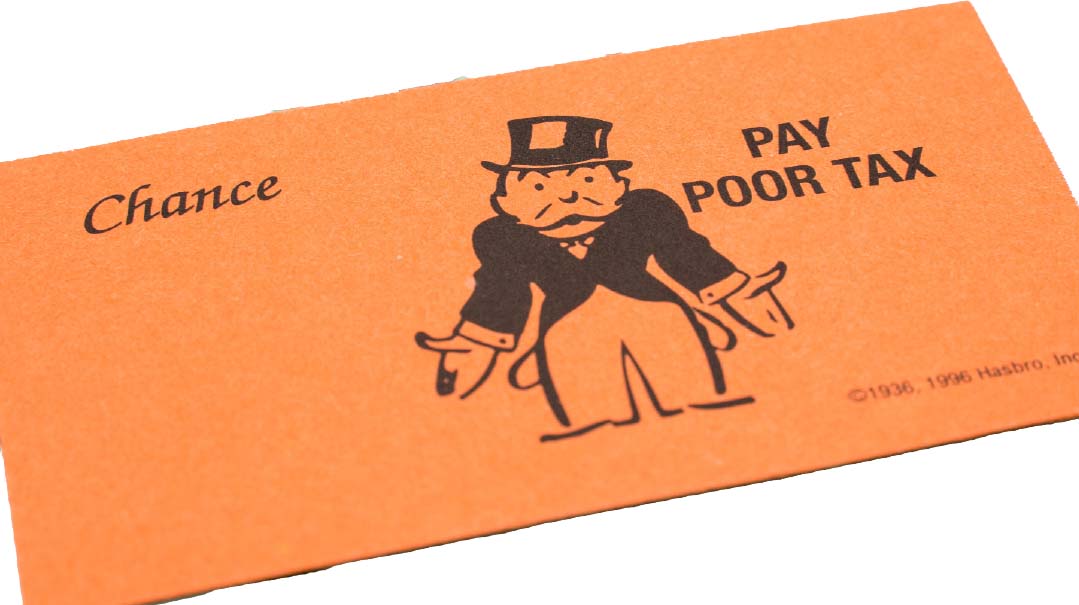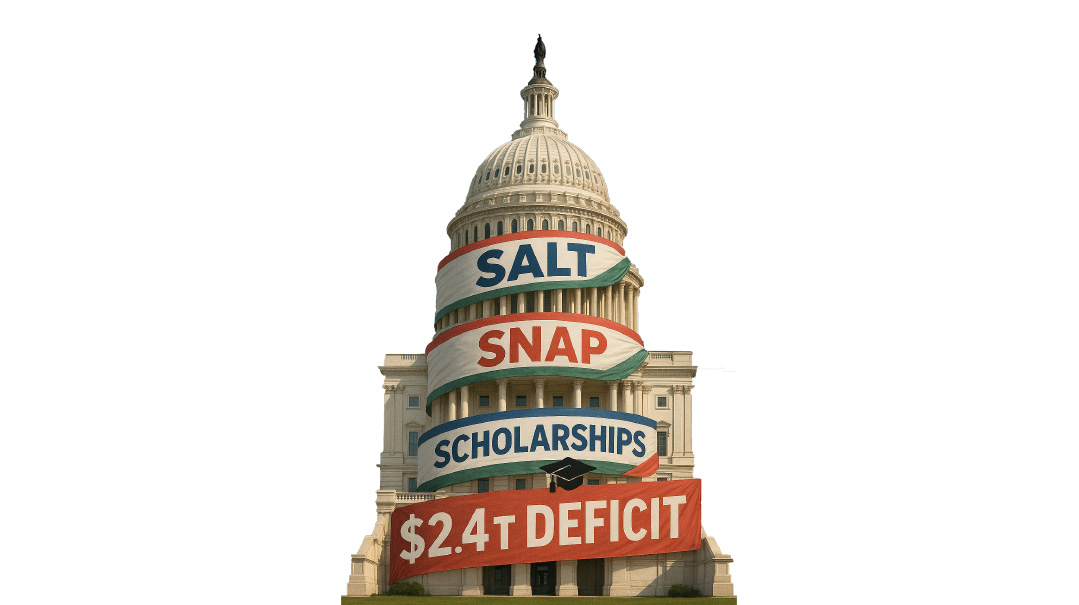Tax the Peasants, Save Mankind

When it comes to climate policy, appearances are everything

Excuse the clichéd talking point about climate activists jetting off to save the planet, but sometimes there’s little choice.
In an act of almost poetic injustice this week, a raft of climate-inspired taxes on household goods, such as disposable paperware — on which many poorer families rely, absent a dishwasher — came into effect in Israel. At that very moment, a planeload of the bureaucrats responsible were spewing tons of CO2 into the atmosphere on their way to the Glasgow climate conference.
Far be it from me to suggest that the 120-strong delegation was a tad oversized for a tiddling country like Israel, or to imply that the trip for some was a ministerial junket. For all I know, the global future mandated every single flunkey.
It’s just that in the maris ayin department, this simply didn’t look good. And when it comes to climate policy, appearances are everything.
Let me be up front about it. Yes, we have to clean up the miles of plastic waste drifting in the Atlantic, and make sure that our rivers don’t run pink with industrial effluent — we can all see the value of that. Beyond that, I have no idea whether climate change is the impending threat to humanity that it’s made out to be by the 30,000 world leaders, tycoons, and assorted baggage carriers convening in Scotland.
But two things seem clear: First, the science is not as settled as the “climate emergency” proponents seem to think. And even if it were, the almost contemptuous, tax-the-peasant way that climate policy is foisted on the public by enlightened elites will rebound on policy makers.
This week’s paper-plate levy is a case in point. In the hours leading up to Sunday’s midnight deadline, Israelis rushed to stock up on vast quantities of disposable goods before they were hit by price hikes of 11 shekel per kilo.
For many large Israeli families, with no funds — or indeed kitchen space — for a dishwasher, disposables are a necessity. But to Environment Minister Tamar Zandberg of far-left Meretz, the use of paperware is an “addiction” that must be cured by punitive taxation.
It’s likely that for Zandberg, a product of the affluent Greater Tel Aviv bubble, it’s simply too hard to imagine a reality in which paper plates are too great a sacrifice.
In the same way, many poor Israelis have their old cars taken off the road because they don’t pass emission standards that didn’t exist when the car was first bought. For a policy maker on a fat public-sector salary with a new car in the garage, it may simply be too hard to fathom the struggle they cause with the flourish of a pen.
Out-of-touch elite policy-making isn’t, of course, an Israeli invention. Remember the 2018 Yellow Jacket protests that rocked France? The Day-Glo-clad protesters took to the streets in fury at President Emmanuel Macron’s price hikes on diesel to meet emissions targets — taxes that made life difficult for some of the most socioeconomically challenged.
And the kid-glove police treatment of the “Insulate Britain” climate activists who regularly block London’s M25 ring road comes from the same mindset. This isn’t hooliganism, but necessary pain — even if motorists don’t know why it’s good for them.
None of this means that lawmakers must allow their countries to drown in a soup of disposable plates and exhaust fumes.
It’s just that before inflicting economic pain in service of fashionable causes, leaders should ask themselves whether other levers should be tried first — or indeed, whether they’re prepared to sacrifice that seat at the latest climate gala.
Defund the Police, R.I.P.
If a conservative is a liberal who was mugged, 2020 was the year when a large number of voters in Democrat-voting cities experienced a political carjacking.
The Washington Post reported that mayors across Blue America — even those previously associated with the “Defund the Police” slogan last year — are running on campaigns focused on law-enforcement platforms.
“One city where the political whiplash has been strongest is Atlanta, where the city council came within one vote of temporarily slashing its police budget by a third in the summer of 2020. Now,” says the WaPo, “amid a sharp increase in homicides, candidates for mayor discuss how to quickly hire more officers.”
That sea change reflects the shift in public mood 18 months after the George Floyd killing that led to the Black Lives Matter campaigns. According to a Pew poll, only 15% of people support defunding police, down from 25% last June. A full three-quarters of black Americans support increasing or keeping current funding levels.
Trumpy, but quiet
Barring an unexpected Democratic landslide in the Virginia governor’s race this week, the loss or even narrow win by veteran Democrat Terry McAuliffe will be pored over by political strategists for what it says about next year’s midterms.
To distill a widely shared analysis, Republican Glenn Youngkin’s low-key, fleece-wearing brand of Trumpism — focusing on education and not on Trumpiness — could prove a winning formula going forward.
The fact that McAuliffe has enraged parents by saying that schools, not they, should determine curriculum has left the Republican sounding ordinary and decent.
Is that a roadmap for the GOP? The idea that Republicans could reprise Joe Biden’s 2020 bunker strategy — staying mum and waiting for the left to destroy itself — sounds appealing. There’s just one problem: Trump himself. “Quiet Trumpism” is an oxymoron.
6 months
have passed since the worst display of Arab violence in Israel in living memory. During the conflict with Gaza in May this year, parts of mixed Jewish-Arab cities like Lod and Akko, as well as Jerusalem, became no-go zones as Jewish cars were stoned.
With Ra’am, an Arab party, holding the balance of power in Naftali Bennett’s government, the reason for the almost entire absence of political debate about the riots’ triggers is obvious.
With Hamas quiescent, the match and the powder keg are some distance apart. But without dealing with the past, what’s to prevent an explosion on Israel’s streets the next time Gaza’s rulers get restless?
(Originally featured in Mishpacha, Issue 884)
Oops! We could not locate your form.






